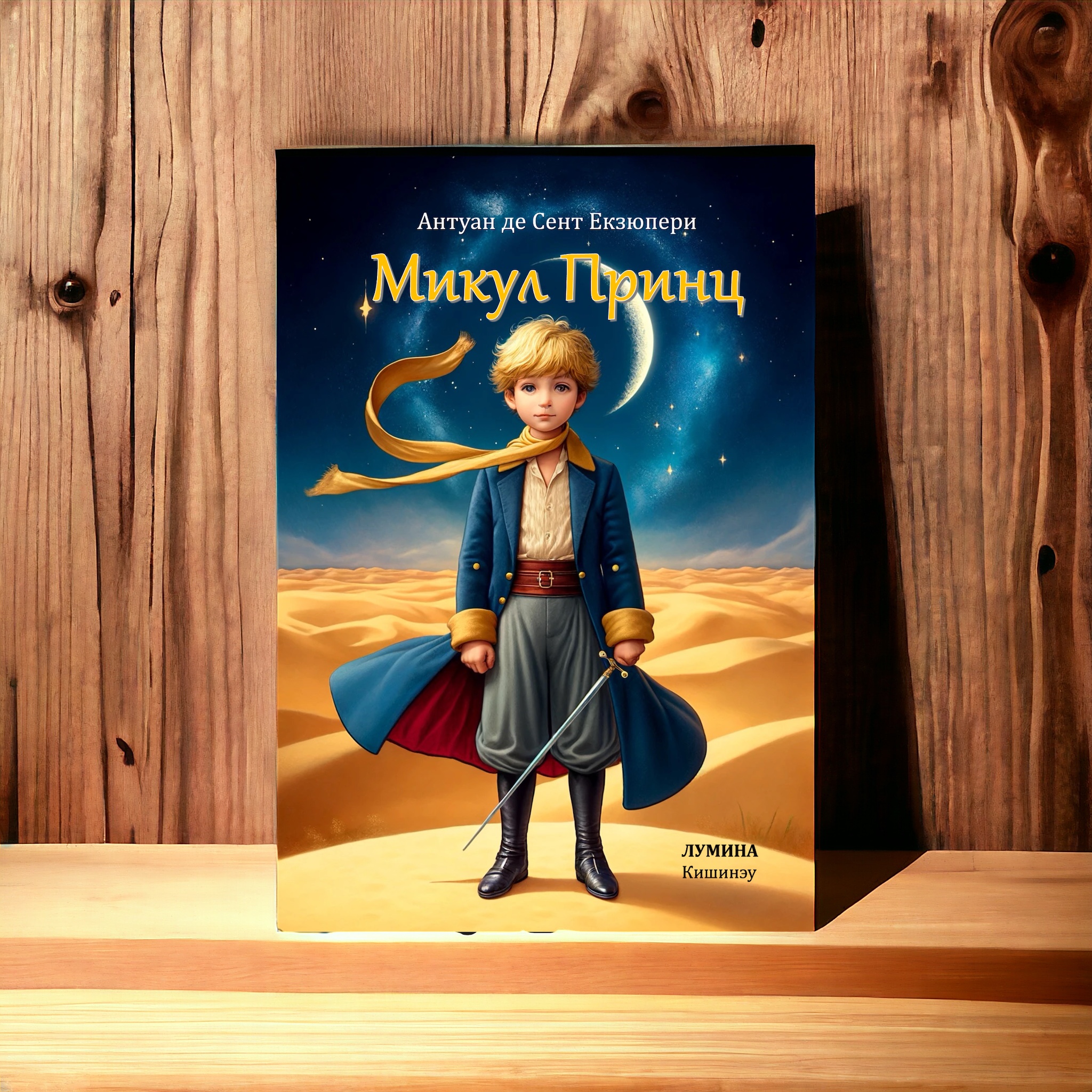
Микул Принц — in old-style Moldavian language.
I reproduced this book from an old Moldavian book published by Lumina in Chisinau in 1974 — when Moldova was called Moldavian SSR, an autonomous republic as a part of the USSR. The language spoken by the Molvodan is actually Romanian. But the occupation by the USSR has changed the identity of the usage of this language in Moldova.
Before the Moldavian SSR, there was a Moldavian ASSR. This Moldavian ASSR was established in 1924 within the Ukrainian SSR, to make a territorial entity of the Moldovan ethnics in the area. This was part of the Soviet policy of national delimitation, which aimed to create national territories for various ethnic groups within the USSR, ostensibly to foster ethnic identities under socialism. The language used in the Moldavian ASSR was based on the Romanian language, but it was initially written in the Latin script and later shifted to the Cyrillic script in the 1930s. This change was aligned with the broader Soviet efforts to standardise the scripts used by Soviet languages to enhance control and reduce foreign influence.
The Moldavian SSR was established in 1940 after the Soviet Union annexed Bessarabia from Romania (as a part of an evil Soviet-Germany collaboration), merging it with the western part of the Moldavian ASSR (which remained part of the Ukrainian SSR). Following the annexation, the Soviet government enforced the Cyrillic script for the Moldavian language, marking a definitive break from the Latin script used in Romania. This was intended to solidify a separate Moldavian identity distinct from Romanian nationalism.
This book in an LPP translation in the Cyrillic Moldavian, published by Lumina in Chinisau in 1974. I found only a scanned PDF with poor quality picture. So I reproduced this book with standard LPP pictures in colour, without changing the layout of the book content.
After gaining independence in 1991, Moldova reverted to using the Latin alphabet for the Moldovan language. The modern-day constitution of Moldova officially recognises the language as Romanian, although the name “Moldovan” persists in certain contexts, reflecting ongoing debates about national identity.
Visit here to have a copy of this book: tlk.lv/moldavian


